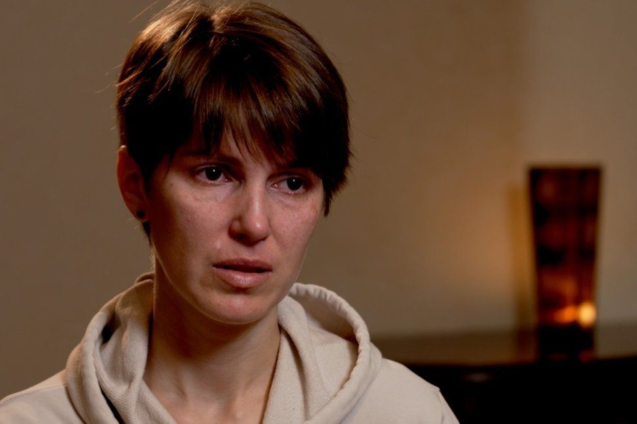
Audio By Carbonatix
Viktoria Kovalenko remembers the moment clearly.
"There was an explosion, or some kind of shots. It deafened me. The back windscreen shattered. My husband shouted, 'Get out of the car.'"
The horror of that day is almost unimaginable.
The following account contains graphic detail which some may find distressing
Nine days into the war in Ukraine, as the fighting raged, Viktoria and her husband Petro had finally decided to flee Chernihiv, in the north of the country. They wanted to keep the children safe. Twelve-year-old Veronika was Viktoria's daughter from her first marriage. Her other daughter, Varvara, is just a year old.
They took what they needed, and drove away from their family home. As they left the outskirts of the city, heading south near the village of Yahidne, stones in the road blocked their path. Petro pulled over, climbed out and started to haul them out of the way.
Seconds later, their car was fired on.
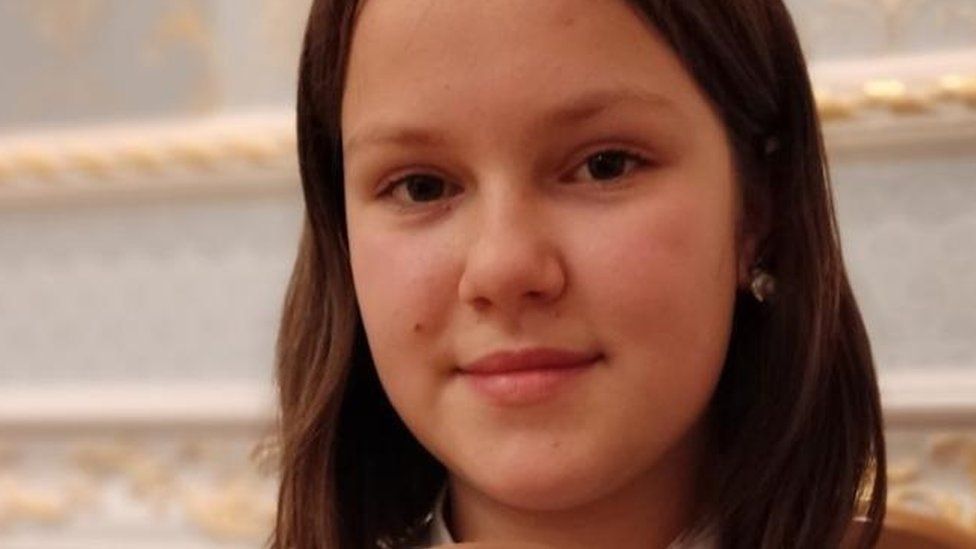
"My older daughter Veronika started to cry, because my head had been cut by a piece of flying glass and I was bleeding," says Viktoria. As she speaks, she points to a spot high on her left cheekbone, a small, twisted red scar.
"Veronika started to shout, her hands were shaking, so I tried to calm her. She got out of the car and I went to follow. As I got out I saw her fall. When I looked, her head was gone.
The car had been struck by a Russian shell and burst into flames.
"I tried to stay calm, I was holding my baby daughter and I needed to get her to safety".
She didn't see Petro again, but his silence told Viktoria that her husband too was dead.
She ran from the burning car. The next 24 hours were a desperate attempt to stay alive.
Viktoria and her baby, Varvara, found shelter in a parked car, but then the shooting began again. She ran to a small building that had clearly been used by soldiers. Hiding there, her phone switched off to save battery, she wondered how she'd keep herself and her daughter safe.
The next day, they were discovered by patrolling Russian troops. They were taken to a school in Yahidne and held captive in the basement.
Mother and baby spent the next 24 days there, in appalling conditions. Viktoria watched people die around her, unable to access the medical care they needed. The BBC has since visited the basement, and spoken to other people held there. Captives describe the bodies lying uncollected for hours, sometimes days.
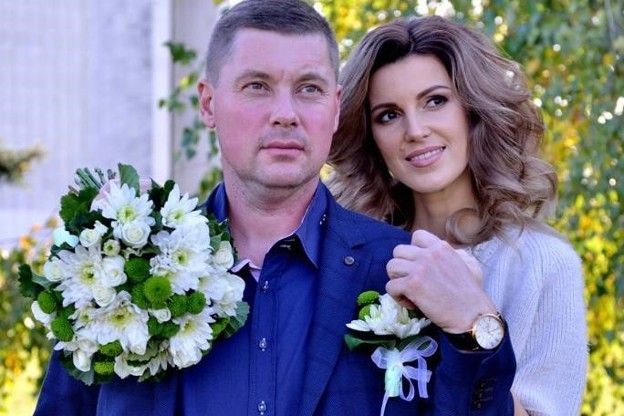
There were 40 people in the room, Viktoria says, with little space to move or walk. There was no light, so they used candles and cigarette lighters. It was dusty and hot, and Viktoria says people found it difficult to breathe. Most of the time people were not allowed to go out even to use a toilet. They were made to use buckets instead.
"The lack of movement made people ill, they sat on the chairs, they slept on the chairs. We could see their veins, and they started to bleed, so we made bandages," recalls Viktoria.
It was in these conditions that Viktoria had to mentally process the brutal loss of her husband and eldest daughter. She told me she stayed as calm and determined as she could, focusing all her energy on saving the life of her remaining child.
But she asked her Russian captors to bring the bodies of Petro and Veronika to the school, so she could bury them.
She sent her ex-husband, Veronika's father, to the wreckage of the car so he could take pictures of the remains. They are barely recognisable as human.
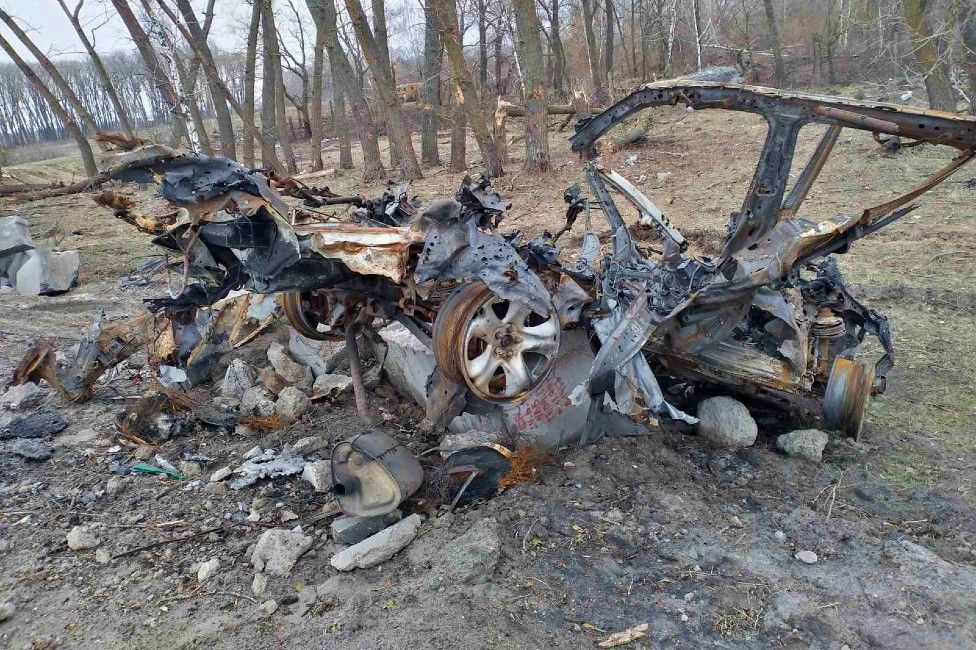
Almost nothing was left from the burned-out vehicle: some of Veronika's clothes, pock-marked with holes and smeared with soot; a small bracelet with a heart-shaped charm; two car number plates, bleached silver from the fierce heat of the blaze.
Viktoria remembers the day the bodies arrived.
"It was the 12th of March. They called me and said, 'Let's go, and you will see where they will lay down.' They were buried in the forest, in two graves, one box was bigger, one box was smaller. And two crosses with signs.
"We stayed and started to cover the boxes with earth, but shelling started, so we ran away before we had finished burying them. It was very frightening."
I ask Viktoria what she would say to the people who did this to her family.
"If I was given the possibility of shooting Putin, I would do it," she replies. "My hand would not shake."
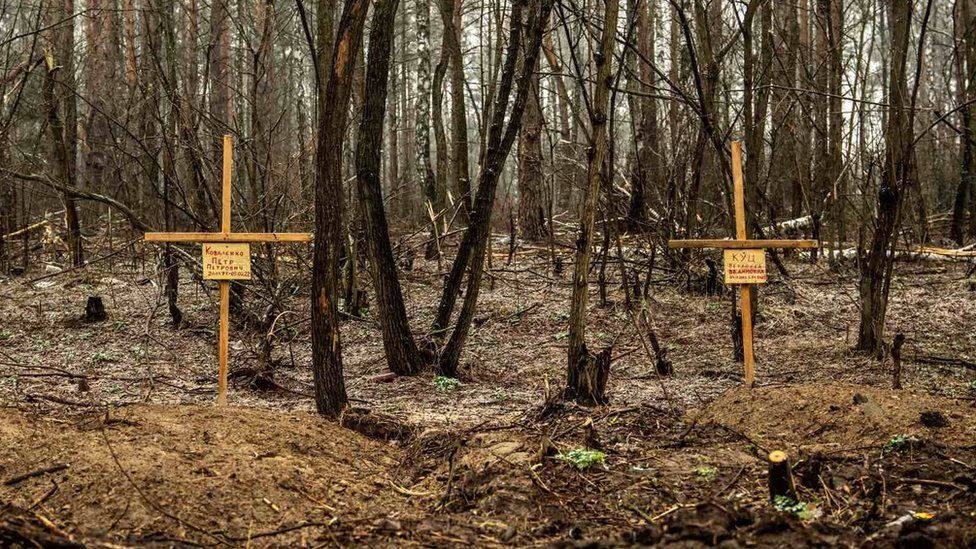
Now Viktoria and Varvara are in the relative safety of Lviv, in the west of Ukraine. The day before we meet, she'd had her first session with a psychologist. "When I'm with people, when I do something and communicate, I forget what's happened. But when I'm alone, I'm lost."
As she says the words, the tears fall.
She shows me a keyring - a small cuddly cow with a heart on its chest. It was a gift from Veronika.
Attached to it is a small gold ring, etched with letters.
"That was from the church, she bought it for me too. It's an amulet, I feel like it saved me. It was in my pocket. The whole time, she was there keeping me safe."
Latest Stories
-
AU flatly rejects Somaliland bid, reaffirms Somalia’s unity
3 hours -
Mali rally to claim draw against AFCON host Morocco
4 hours -
Man City players ‘incredibly disciplined’ – Guardiola
4 hours -
How to get rid of unwanted Christmas presents – without being found out
4 hours -
Zelensky plans to meet Trump on Sunday for talks on ending Russian war
4 hours -
Thousands of US flights disrupted as winter storm looms
4 hours -
US judge blocks detention of British social media campaigner
4 hours -
Gun Amnesty: Greater Accra leads in weapons surrendered
5 hours -
Dave Bishop outlines vision as he seeks Ghana Boxing Federation executive board position
5 hours -
Former Ivory Coast coach Gasset dies
6 hours -
An Open Letter to the Deputy Attorney General, Dr Justice Srem-Sai
6 hours -
Humour at its finest at Kumasi Comedy Show
6 hours -
Police Christmas special operation: 101 suspects arrested in Greater Accra
7 hours -
15 arrested after sporadic shooting at Ho central mosque
7 hours -
GES condemns alleged theft of food supplies at Awaso STEM SHS
7 hours

